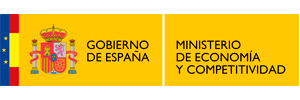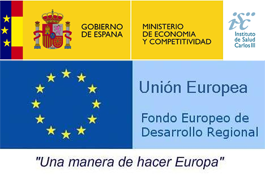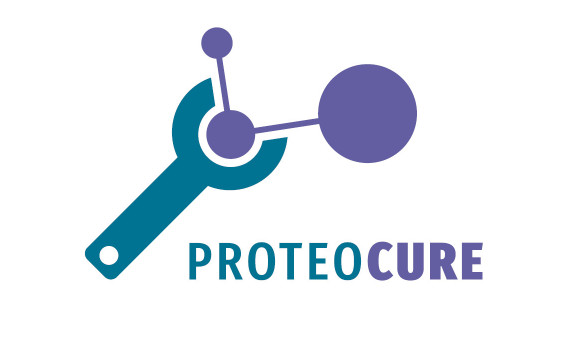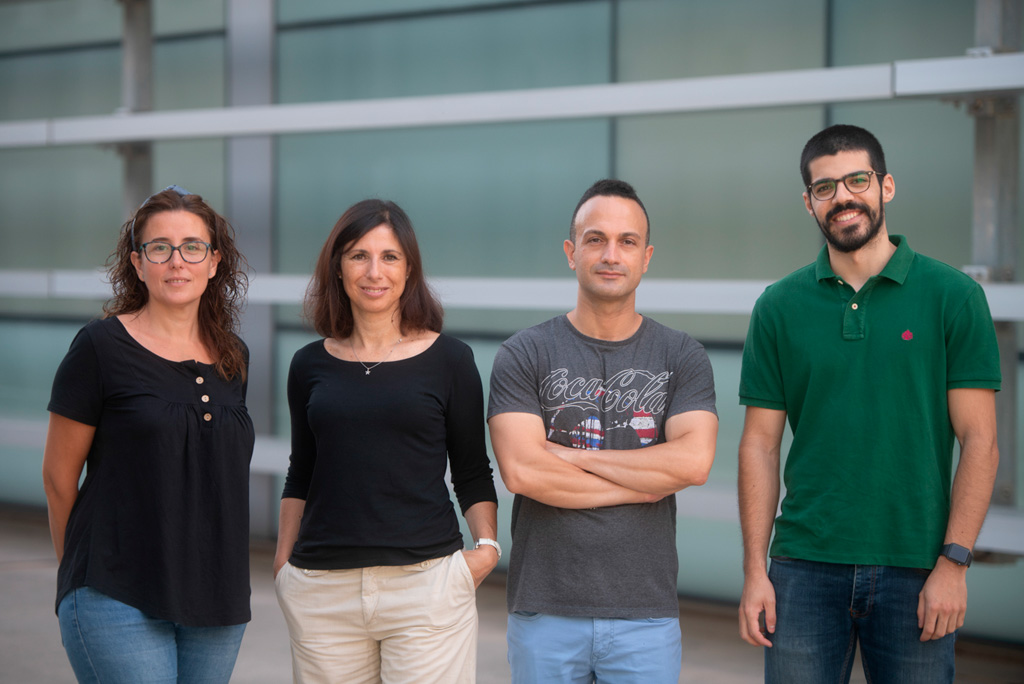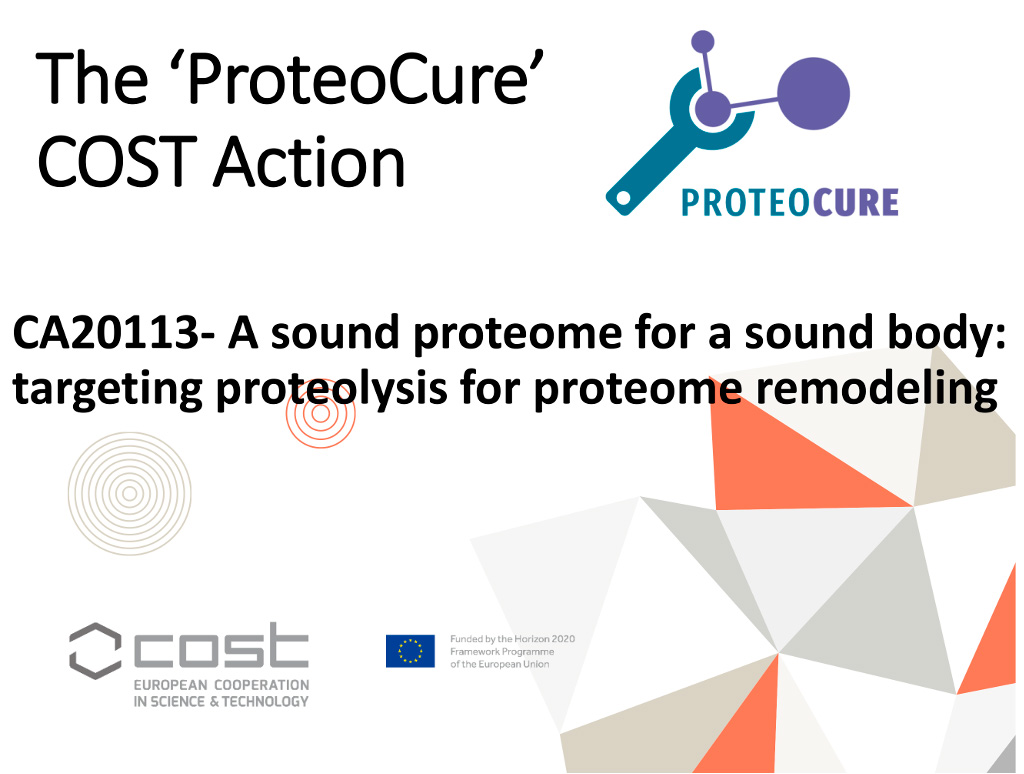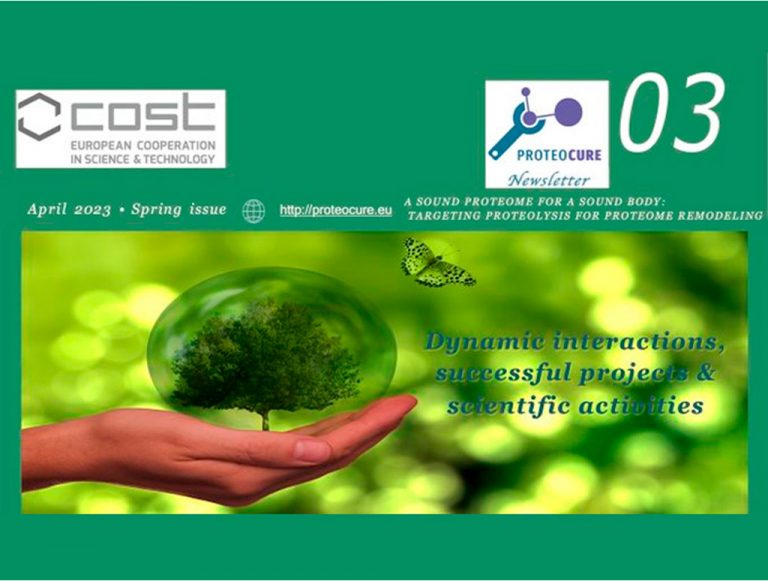OUR MAIN OBJECTIVE IS TO UNDERSTAND THE MOLECULAR MECHANISMS THAT CONTROL CELL PROLIFERATION AND INVASION, AND TUMOR HETEROGENEITY.
Our work is based on understanding how proliferative cancer becomes invasive, and identifying the molecular processes that regulate the abnormal proliferation, migration, and invasion capacity of these cells. To investigate these processes we focus our research on the study of:
- Transcription factors (TFs) in cancer cell proliferation and invasion. TFs bind to genome-specific DNA sequences and are the main determinants in the regulation of the gene expression programs that specify cell status and behavior. AP-1 is an important TF in oncogenic signaling and so, we are investigating the molecular mechanisms by which the loss of AP-1 activity regulation in epithelial cancers alters gene expression to promote cell proliferation, migration, and invasion.
- The role of translation factors in cancer. Accumulating evidence from multiple tumor types indicates that altered translational control plays an important role in cancer pathogenesis. We study the role of the polyamine-dependent translation factor, eIF5A, in cancer progression.
- Tumor heterogeneity. There is mounting evidence that resistance to cancer treatment and metastasis might be related to the presence of cancer stem cells (CSCs), a minor cell population present in tumors. In our work, we isolate and characterize CSCs from lung tumors with the aim of designing therapeutic strategies that target these cells.
The multidisciplinary experimental approaches we have developed in our laboratory are based on the integration of cellular and molecular biology, biochemistry, and the analysis of patient-derived samples. We exploit the potential of the genetic and pharmacological manipulation of patient-derived tumor organoids and xenograft models with the goal of developing new approaches to personalized medicine.
The expected outcome of this project is an increase in the knowledge of the molecular events involved in cancer progression, metastasis, and treatment resistance, and the identification of novel targets and biomarkers that can be added to our collective toolbox for fighting cancers.
Presentation
Get to know us better
Research Staff
The people who make it all possible
Rosa M Farràs Rivera
rfarras@cipf.es
Alihamze Fathinajafabadi Nasresfahani
afathina@cipf.es
Carolina Gandía Ventura
cgandia@cipf.es
Javier Antón Salvador
janton@cipf.es
Publications
Our scientific contributions
Eukaryotic Initiation Factor 5A2 localizes to actively translating ribosomes to promote cancer cell protrusions and invasive capacity.
Martínez-Férriz A, Gandía C, Pardo-Sánchez JM, Fathinajafabadi A, Ferrando A and Farràs R
Cell Communication and Signaling, 2023 Mar, DOI: 10.1186/s12964-023-01076-6, Vol. 21, pag. 54-54
New roles for AP-1/JUNB in cell cycle control and tumorigenic cell invasion via regulation of cyclin E1 and TGF-ß2.
Pérez-Benavente B, Fathinajafabadi A, de la Fuente L, Gandía C, Martínez-Férriz A, Pardo-Sánchez JM, Milián L, Conesa A, Romero OA, Carretero J, Matthiesen R, Jariel-Encontre I, Piechaczyk M and Farràs R
GENOME BIOLOGY, 2022 Dec, DOI: 10.1186/s13059-022-02800-0, Vol. 23, pag. 252-252
Ubiquitin-mediated mechanisms of translational control.
Martínez-Férriz A, Ferrando A, Fathinajafabadi A and Farràs R
SEMINARS IN CELL & DEVELOPMENTAL BIOLOGY, 2022 Dec, DOI: 10.1016/j.semcdb.2021.12.009, Vol. 132, pag. 146-154
Lung tumorspheres reveal cancer stem cell-like properties and a score with prognostic impact in resected non-small-cell lung cancer
Herreros-Pomares A, de-Maya-Girones JD, Calabuig-Fariñas S, Lucas R, Martínez A, Pardo-Sánchez JM, Alonso S, Blasco A, Guijarro R, Martorell M, Escorihuela E, Chiara MD, Duréndez E, Gandía C, Forteza J, Sirera R, Jantus-Lewintre E, Farràs R and Camps C
Cell Death & Disease, 2019 Sep, DOI: 10.1038/s41419-019-1898-1, Vol. 10, pag. 660-660
GSK3-SCFFBXW7 targets JunB for degradation in G2 to preserve chromatid cohesion before anaphase
B. PEREZ-BENAVENTE, J. GARCIA, M. RODRIGUEZ, A. PINEDA-LUCENA, M. PIECHACZYK, J. DE MORA and R. FARRAS
ONCOGENE, 2013 Apr, DOI: 10.1038/onc.2012.235, Vol. 32, pag. 2189-2199
FUNDING
Thank you for supporting us
